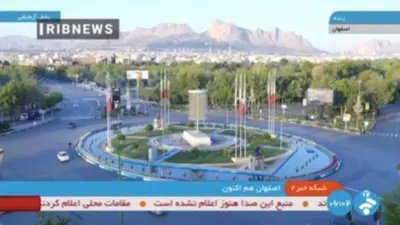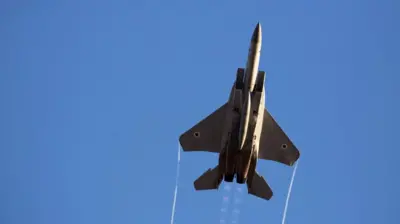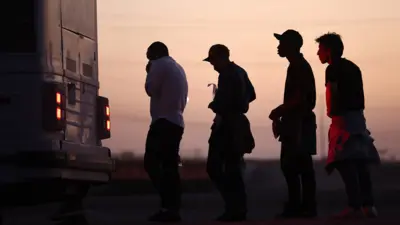We've updated our Privacy and Cookies Policy
We've made some important changes to our Privacy and Cookies Policy and we want you to know what this means for you and your data.
Somalia conflict: One US soldier killed, four wounded in firefight
Image source, AFP
A US special forces soldier has been killed in an attack by suspected al-Shabab militants in southern Somalia, officials say.
Four other US soldiers and a Somali soldier were wounded in what appears to have been an ambush north of the port of Kismayo, US defence officials added.
The American forces were operating alongside Somali troops.
It was the first known US combat death in Africa since an ambush in Niger in October, the New York Times reports.
US President Donald Trump sent his condolences in a tweet.
This article contains content provided by Twitter. We ask for your permission before anything is loaded, as they may be using cookies and other technologies. You may want to read Twitter cookie policy and privacy policy before accepting. To view this content choose 'accept and continue'.
End of Twitter content, 1
The US military says its forces operate on an "advise and assist" mission with the Somali National Army.
Traditionally, US presidents have been wary of intervening in Somalia since 18 special forces soldiers died fighting militias in Mogadishu in 1993, a battle dramatised in the film Black Hawk Down.
However, President Donald Trump has expanded military operations against al-Shabab, the al-Qaeda affiliate there.
Al-Shabab was forced out of the capital, Mogadishu, in August 2011 following an offensive spearheaded by African Union (AU) troops, and left Kismayo in September 2012.
But it still has a strong presence in regions around the capital.
The US casualties are the first confirmed in Somalia since May 2017 when one soldier was killed and two others wounded in a gun battle with al-Shabab west of Mogadishu.
That was the first confirmed US combat death in the country since the Black Hawk Down incident.
Top Stories
Features & Analysis
Most read
Content is not available








